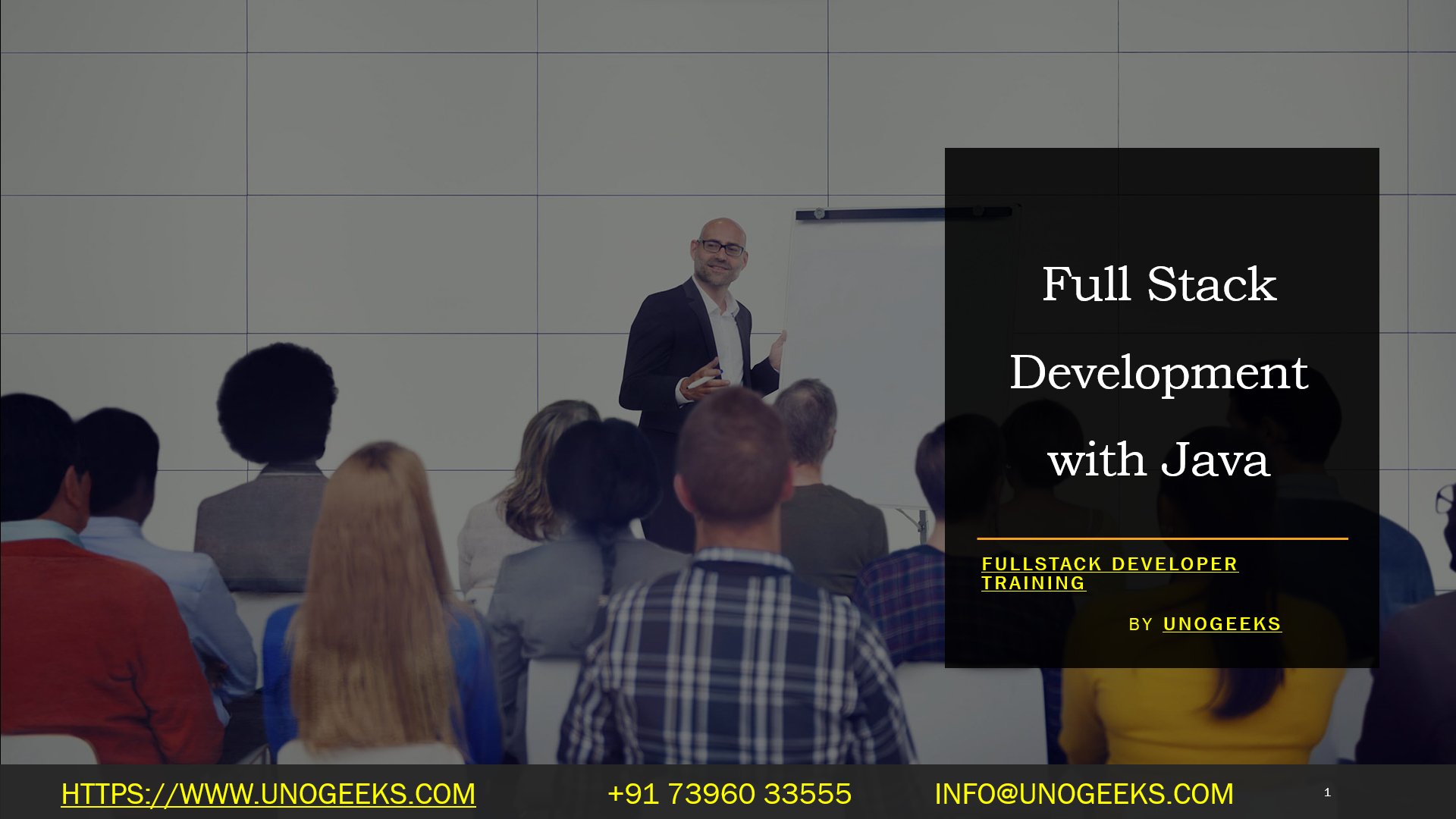Full Stack Development with Java
Full Stack Development with Java
Full Stack Development with Java refers to the practice of building both the front-end and back-end components of web applications using the Java programming language. Java is a versatile and widely-used language that can be employed for various aspects of web development. Here’s an overview of Full Stack Development with Java:
Front-End Development:
- HTML/CSS: Front-end development typically starts with structuring web content using HTML and styling it with CSS for layout and visual presentation.
- JavaScript: JavaScript is used to add interactivity and dynamic behavior to web pages. Common JavaScript libraries and frameworks include jQuery, React, Angular, and Vue.js.
Back-End Development:
- Java Web Frameworks: Java offers several web frameworks for back-end development, including:
- Spring Framework: Spring is a popular and comprehensive framework that provides various modules for building web applications. Spring Boot simplifies the setup of Spring-based projects.
- Java EE (Enterprise Edition): Java EE provides a platform for building enterprise-level applications with components like Servlets, JSP (JavaServer Pages), and EJB (Enterprise JavaBeans).
- Database Integration: Java applications often integrate with relational databases like MySQL, PostgreSQL, or Oracle using technologies such as JDBC (Java Database Connectivity) or JPA (Java Persistence API).
- API Development: Building APIs (Application Programming Interfaces) to enable communication between the front-end and back-end. RESTful or GraphQL APIs are common choices, and libraries like Spring REST or JAX-RS are used.
- Authentication and Security: Implementing authentication and authorization mechanisms to protect sensitive data and secure the application. Java provides security libraries and frameworks like Spring Security.
- ORM (Object-Relational Mapping): Using ORM tools like Hibernate to simplify database interactions by mapping Java objects to database tables.
- Server Deployment: Deploying Java web applications on web servers like Apache Tomcat, Jetty, or using cloud platforms like AWS, Azure, or Google Cloud.
Full Stack Developer Training Demo Day 1 Video:
Conclusion:
Unogeeks is the No.1 IT Training Institute for Full Stack Developer Training. Anyone Disagree? Please drop in a comment
You can check out our other latest blogs on Full Stack Developer Training here – Full Stack Developer Blogs
Please check out our Best In Class Full Stack Developer Training Details here – Full Stack Developer Training

———————————-
For Training inquiries:
Call/Whatsapp: +91 73960 33555
Mail us at: info@unogeeks.com
Our Website ➜ https://unogeeks.com
Follow us:
Instagram: https://www.instagram.com/unogeeks
Facebook:https://www.facebook.com/UnogeeksSoftwareTrainingInstitute
Twitter: https://twitter.com/unogeeks
